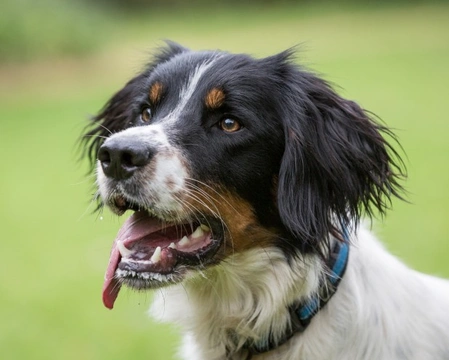
Canine exercise intolerance and gasping for breath
Dogs that are in good condition and perfect health are usually very enthusiastic about going out walking, and are lively and active once they actually get out there. Your dog should be able to stretch their legs properly and exert themselves, coming back tired but happy and not on their last legs!
However, dogs that have an exercise intolerance can soon be left short of breath after even a minor exertion, and for some dogs, taking more than a few steps can be a real struggle that may leave them worn out and possibly, gasping for breath. This is obviously of concern for the dog’s owners, and rightly so, and intolerances and gasping to get enough air are not conditions that arise for no reason overnight.
In this article, we will take a look at some of the most common causes of exercise intolerance and shallow, gasping breathing in the dog. Read on to learn more.
Obesity
One of the most common causes of exercise intolerance and gasping for breath in dogs is obesity, and many dog owners do not even realise that their dogs are overweight! Weight gain can be a slow process, not only reliant on food intake and exercise, but also other factors such as the age of the dog and subtle lifestyle changes.
You should be able to feel your dog’s ribs ever so slightly by running your hand along their flank, and if you cannot feel the ribs or have to dig around to find them, your dog is carrying some excess weight!
Obesity in the dog can cause just as many problems as it can in people, so getting your dog back down to a healthy weight is the obvious way to resolve this, and various other potential problems too.
Old age
Dogs over the age of seven or so are considered mature, and eventually, senior as they enter old age. Just as can happen with people, old age brings a range of physical and mental changes with it, and even dogs that have been as fit and active as a butcher’s dog for their whole lives will begin to slow down as they become elderly.
Just as is the case with weight gain, old age is something that advances slowly, and it can be hard for the dog owner to realise that their dog is beginning to show their age, until they show clear signs of struggling with things, such as getting tired out quickly and gasping for breath on walks.
It is a good idea to ask your vet to run a senior health check on your dog once they reach old age, as sometimes lung function can be compromised as one of the side effects of aging.
Foreign objects
Dogs that like to chew things or rip things up such as their toys run the potential risk of swallowing something that they have chewed, or aspirating it into the lungs. This will provide an obstruction in the airway that may only become apparent when your dog is exerting themselves and needs to breathe harder than usual, so it is worth getting this looked into by your vet.
Heartworm or lungworm
Both heartworm and lungworm are serious conditions for the dog, and while heartworm is not as common in the UK as it is in America, it is still worthy of a mention. Any parasitic infestation that affects a major organ such as the heart or lungs can lead to an exercise intolerance, and both infestations can cause your dog to have problems regulating their breathing, particularly when they are working hard.
Exercise intolerance and gasping for breath are often the first symptoms of a problem of this type, and so it is wise to ask your vet to test your dog for the presence of heart or lung worms, and treat them accordingly if they are found.
Respiratory problems
A whole host of various conditions of the respiratory system can lead to exercise intolerance and gasping for breath in the dog, and for some dogs, they might not even need to exert themselves very much before their breathing problem becomes very pronounced. Just running a few steps or climbing stairs can be enough to make breathing difficult for affected dogs, and a whole range of issues may be at the root of the problem.
Chronic conditions such as canine asthma, infections of the lungs and illnesses such as bronchitis can all lead to a narrowing of the airways or a build-up of fluid or pus in the lungs, all of which can make exercise and even just normal activity a challenge for your dog.
If you have any concerns about your dog, getting your vet to give them a physical examination to get to the root of the problem can help to resolve it, and the sooner you contact your vet, the greater the chances will be of your dog being able to recover, or for chronic conditions, have the condition brought under control.



